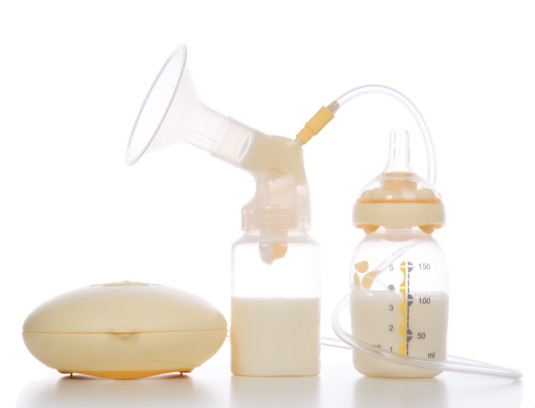7 Tips for Properly Storing & Freezing Breastmilk
Have you ever gotten confused on the whole storing and freezing breastmilk issue? It can be confusing to understand exactly what to do when it comes to breastmilk. Check out these 7 tips for properly storing and freezing breastmilk. Keep this checklist handy, so you know exactly what to expect when it comes to taking care of that liquid gold.
Use storage designed for breastmilk. Although breastmilk storage containers can be a bit pricey, it’s best to use containers that are designed specifically for breastmilk. Using general plastic baggies can result in leaking breastmilk. If you don’t have storage containers geared towards breastmilk, always use hard plastic. Using hard plastic keeps the breastmilk from leaking.
Always put a date on freshly pumped breastmilk. Your mind may be in a temporary fog thanks to the new baby in your life, but it’s important to put a date on freshly pumped breastmilk. You don’t want to guess when you pumped the milk. Plus, putting a date on the milk makes storing in a freezer easier. You know exactly when you pumped it and when it will go bad.
Wash your hands and breast pump with warm water and soap. It’s fairly easy for your hands to get contaminated when you have kids. To keep baby and breastmilk safe from contamination, always wash your hands with warm water and soap. If you need to wash your breast pump equipment, washing the pieces in warm water and soap can also help disinfect it.
Leave about an inch free at the top of your breastmilk container. When you’re freezing breastmilk, everything tends to expand. When you leave this inch free, you can help keep the container from expanding too much or eventually exploding.
Thaw in the fridge overnight. If you have frozen breastmilk that you need for the next day, simply unthaw it in the fridge overnight. Try to stay away from microwaving any type of breastmilk because it can break down the nutritious components. Instead of shaking the breastmilk to mix the fat back into it, simply swirl it. Shaking breastmilk can also cause a breakdown of nutrients.
Breastmilk has a unique shelf life. Interesting enough, breastmilk can stand to be ‘set’ out a little longer than formula bottles. Breastmilk can actually sit in a room with a temperature between 60-80 degrees F for up to three or four hours. If you’re storing breastmilk in a freezer, you can expect it to last anywhere from 6 months to a year. If you plan on keeping the breastmilk in the fridge, it can last anywhere from 3-6 days before going bad. Thawed breastmilk can only last up to 1-2 hours outside of the fridge and 24 hours in a fridge. (These are not “exact” numbers but based on research have been proven to be the best).
Use a pump that works best for you. Not every breastfeeding mom will find there’s a one size fits all solution for pumping. However, in order to have breastmilk to store and freeze, you will need to find a pumping solution that works for you!
What are some tips you have for properly storing and freezing breastmilk?

